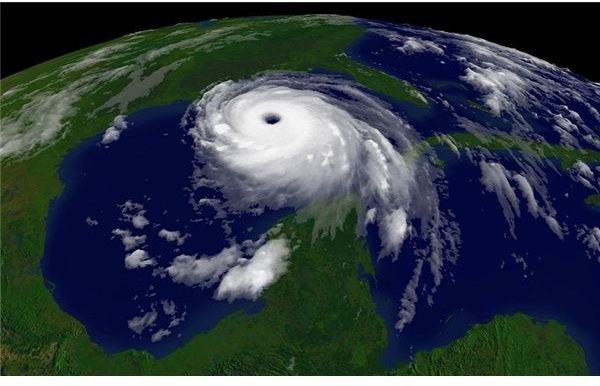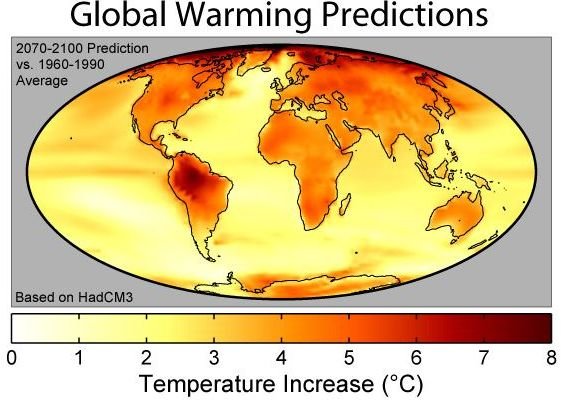Does Global Warming Effect Climate?
The headline of the newspaper reads, “Greenhouse Gases are Responsible for Global Warming!” This headline assumes the trapping of heat by gases in the upper atmosphere is a bad thing. On the contrary, the “greenhouse gases” named for their heat trapping effects, are beneficial to every person on earth. Without these gases in place, the earth temperature would hover at freezing every day of the year. While the greenhouse gases are necessary for comfortable human life on earth, are the addition of above average amounts of carbon dioxide effecting the climate?
Natural Global Warming and the Climate
The earth naturally goes through periods of heating and cooling. While many people today, read the newspaper and believe the entire earth is feeling the effect of global warming, that statement is not entirely true. According to the National Oceanic and Atmosphere Administration (NOAA), there are some parts of the United States that are cooling rather than warming. Specifically the south eastern United States. Sections of the North Atlantic Ocean are also showing cooling trends. However, the majority of the United States is warming at a faster rate than any other land mass on earth.
Are We Warming Faster?
During the last eight years, the NOAA has noted seven of the hottest years on record. Looking at an even broader spectrum of time, the ten hottest years of all time have occurred in the last 14 years. So, to answer the question, yes the earth is warming faster than in previous decades. Data collected in the troposphere, which starts at 2,500 feet and ends at 26,000 feet, are concurrent with the temperature studies on land. Not only is the surface of the earth warming, but the upper atmosphere is warming as well.
What Effect Does This Global Warming Have on the Climate?
Climate is defined as the average weather in a given region, or the range of temperatures in that region during a given period of time. By this definition, global warming is changing the climate quite radically. The NOAA has noted a decrease in the variations between the high temperatures and the low temperatures across all seasons. There is also evidence supporting a longer season of warmth and a shorter season of cold directly related to a lowering number of reported frosts each year. While this is good for the farming industry and the vacation industry, the warming looks like it will continue.
How Warm is Too Warm?

As the climate continues to warm, scientists suspect there will be an increase in active storms that often form over warm bodies of water. The rainfall cycle will also be directly effected by global warming. As the bodies of water on the earth grow warmer, the waters will evaporate more quickly. Since there is no place for these waters to go, the rainfall amounts will increase parallel to the strength of the rain. This can cause an increase in erosion and thus damaging fragile ecosystems.
The Monetary Effect of Global Warming and Climate Change
In 1965, Hurricane Betsy did $9.35 billion in damage (when adjusted to 2005 USD amounts). In 1972, Hurricane Agnes did $15.23 billion in damage. In 1992, Hurricane Andrew did $40.7 billion in damage. Between 2004 and 2008, Hurricanes Ivan, Charley, Ike, Wilma and Katrina did a combined total of more than $175 billion in damage. The warming of the climate is thought to be directly related to the increase in storm severity and thus an increase in monetary damages. Subsequently, insurance rates in the areas affected by these storms now find an increase in insurance rates due to the storm damage. Global warming effects climate and climate change effects every thread of life.
